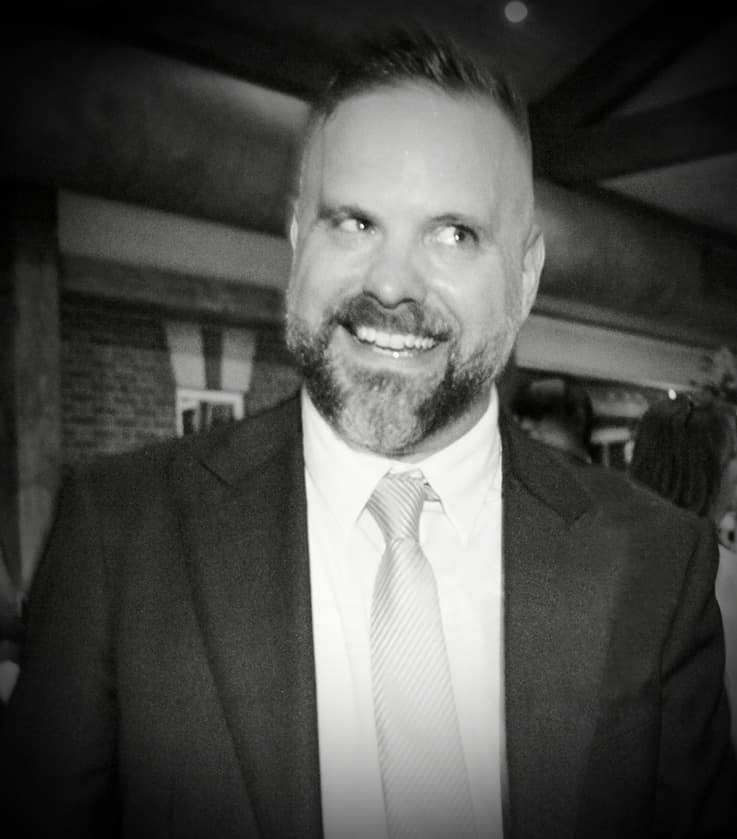- Legacy Blog
- The Business of Improv
Tuesday, March 17, 2015
The Business of Improv

David Evans is a former Improv Conspiracy student and performer who moved to Sydney last year. Rather than come back and play with us, he wrote a fantastic article for our blog. We'll take it!

No one teaches you how to manage people. It’s not a skillset likely taught alongside your first job possibly folding jeans at the GAP, lifeguarding at the local pool or if like me, spending your summers scooping ice cream for hungry tourists. The skills that teach us how to inspire, instruct, trust, and motivate others is a talent that somehow gets lost in our current education system and absent from the majority of our professional development training. If you’re lucky, you work a job for a number of years, follow the rules set up by some senior team and wait for your time to crawl up the ladder. In the meantime you pick up the habits of your previous managers whether good or bad and typically adapt their methods on how to communicate information, lead others to success and how to support people through uncertainty during stressful times. It’s a continuous cycle and normally a broken one where the blind are left leading the blind.
I’ve spent 12 years working in professional environments and found myself either at the mercy of really bad management or in the glow and awe of some brilliant ones. When I recently began to lead my own teams again I found myself unconsciously drawing upon my improv experiences and the lessons learned from performing Harolds again and again to help influence and strengthen my own people management skills. For anyone who’s taken improv classes or a weekend workshop you quite often hear about how the skills highlighted in those courses are applicable not only for the students who dream of one day being on SNL, but also for those who dream of being CEO. It soon became clear to me after aligning my personal management style with the principles of Improv, I became a much better manager. Within days there was a noticeable difference in the daily interactions of my team as people engaged with each other instead of hiding behind email. The overall mood in the studio seem to lighten as people slowed down and listened to each other. Productivity increased as individuals worked together to accomplish tasks instead of working independently. The changes were profound.
There are so many reasons I’m personally thankful I found The Improv Conspiracy and art of improvisation, even if a bit late in my life vs. many others. The community that Artistic Director Adam Kangas envisioned years ago and has worked so hard to create has proudly come to life. My best friends and the people I respect the most for their creative talents all come from The Improv Conspiracy and the improv community at large. The friendships, the respect and huge amounts of laughs we shared are some of the best memories made in recent years. However the real gifts that come from improv can be less tangible. It’s those breakthrough moments whether discovered in class or at practice or on even while on stage when the scene is bombing that stick with you the most. That moment when you find your true voice and lose the fear of speaking up for good. Or the realisation you’ve actually never really listened to anyone else in your entire life but finally understand what it means to actively hear someone because they depend on you too. Or how to really collaborate in a group where everyone is building upon each other’s ideas instead of tearing them down in order to keep their own agenda and control.
Being part of an ensemble and performing each week with my old team Foggy Windows taught me how to be vulnerable, how to let go and understand that my team always has my back. It taught me how to trust my own thoughts, actions and ideas before editing myself out. The ability to fail in improv is an important aspect for growth, confidence and learning the craft. It too is an important factor for any profession or job. The difference is that within the world of improv, you’re able to do it in a safe and supportive environment where most professional settings fail short of that promise. When people don’t have the room to experiment, innovate, fail, reinvest, retry, restart and give it another go, they feel suffocated, anxious, and uninspired.
I teach improv almost every day now just in an office instead of a classroom. The simple practice of “Yes, And” can take many forms as well as allowing divergent thinking move organically to convergent thinking when in group brainstorming. I urge anyone who aspires to be an effective leader and manager to enroll in some form of improv class to better yourself and your team. Improv will always be a part of my life. I will also be a student of improv who’s anxious to grow and stretch my skills as it’s embedded in me now thanks to The Improv Conspiracy. My goal now is to give back and take everything I have learned this far to help spread the gospel for others. Specifically I want to focus in that gap between the art and commerce worlds using improvisation as the bridge to make better creative leaders and managers. MBAs don’t make good leaders but improv does.
